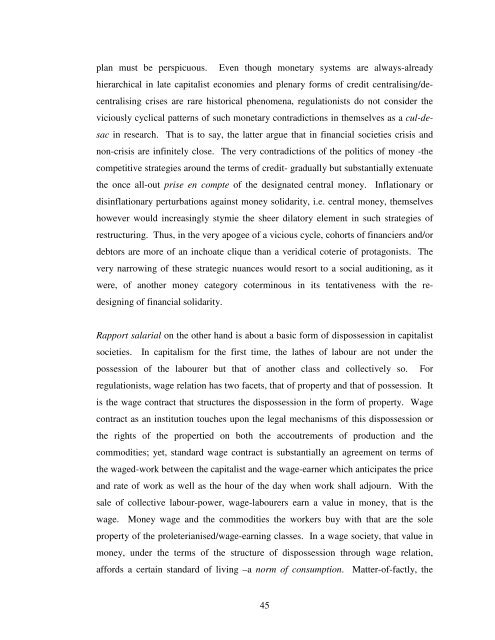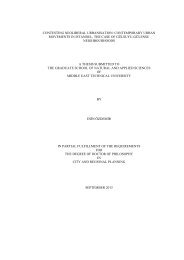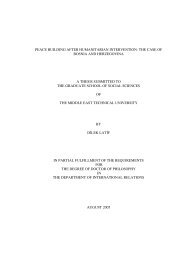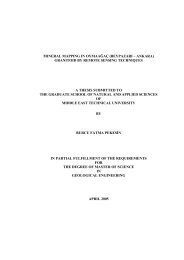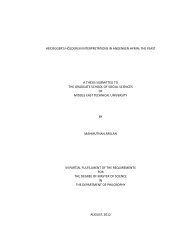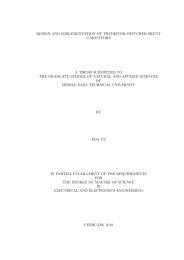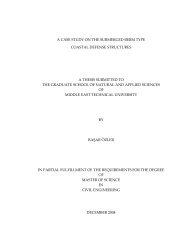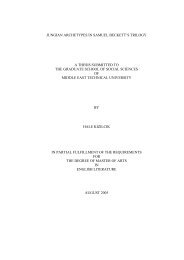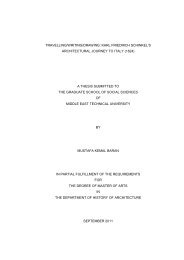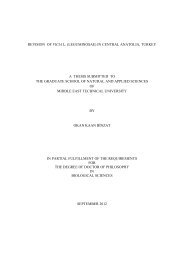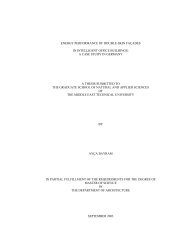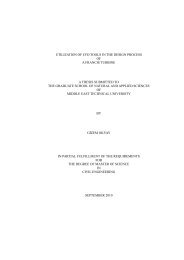View Original - Middle East Technical University
View Original - Middle East Technical University
View Original - Middle East Technical University
Create successful ePaper yourself
Turn your PDF publications into a flip-book with our unique Google optimized e-Paper software.
plan must be perspicuous. Even though monetary systems are always-already<br />
hierarchical in late capitalist economies and plenary forms of credit centralising/de-<br />
centralising crises are rare historical phenomena, regulationists do not consider the<br />
viciously cyclical patterns of such monetary contradictions in themselves as a cul-de-<br />
sac in research. That is to say, the latter argue that in financial societies crisis and<br />
non-crisis are infinitely close. The very contradictions of the politics of money -the<br />
competitive strategies around the terms of credit- gradually but substantially extenuate<br />
the once all-out prise en compte of the designated central money. Inflationary or<br />
disinflationary perturbations against money solidarity, i.e. central money, themselves<br />
however would increasingly stymie the sheer dilatory element in such strategies of<br />
restructuring. Thus, in the very apogee of a vicious cycle, cohorts of financiers and/or<br />
debtors are more of an inchoate clique than a veridical coterie of protagonists. The<br />
very narrowing of these strategic nuances would resort to a social auditioning, as it<br />
were, of another money category coterminous in its tentativeness with the re-<br />
designing of financial solidarity.<br />
Rapport salarial on the other hand is about a basic form of dispossession in capitalist<br />
societies. In capitalism for the first time, the lathes of labour are not under the<br />
possession of the labourer but that of another class and collectively so. For<br />
regulationists, wage relation has two facets, that of property and that of possession. It<br />
is the wage contract that structures the dispossession in the form of property. Wage<br />
contract as an institution touches upon the legal mechanisms of this dispossession or<br />
the rights of the propertied on both the accoutrements of production and the<br />
commodities; yet, standard wage contract is substantially an agreement on terms of<br />
the waged-work between the capitalist and the wage-earner which anticipates the price<br />
and rate of work as well as the hour of the day when work shall adjourn. With the<br />
sale of collective labour-power, wage-labourers earn a value in money, that is the<br />
wage. Money wage and the commodities the workers buy with that are the sole<br />
property of the proleterianised/wage-earning classes. In a wage society, that value in<br />
money, under the terms of the structure of dispossession through wage relation,<br />
affords a certain standard of living –a norm of consumption. Matter-of-factly, the<br />
45


